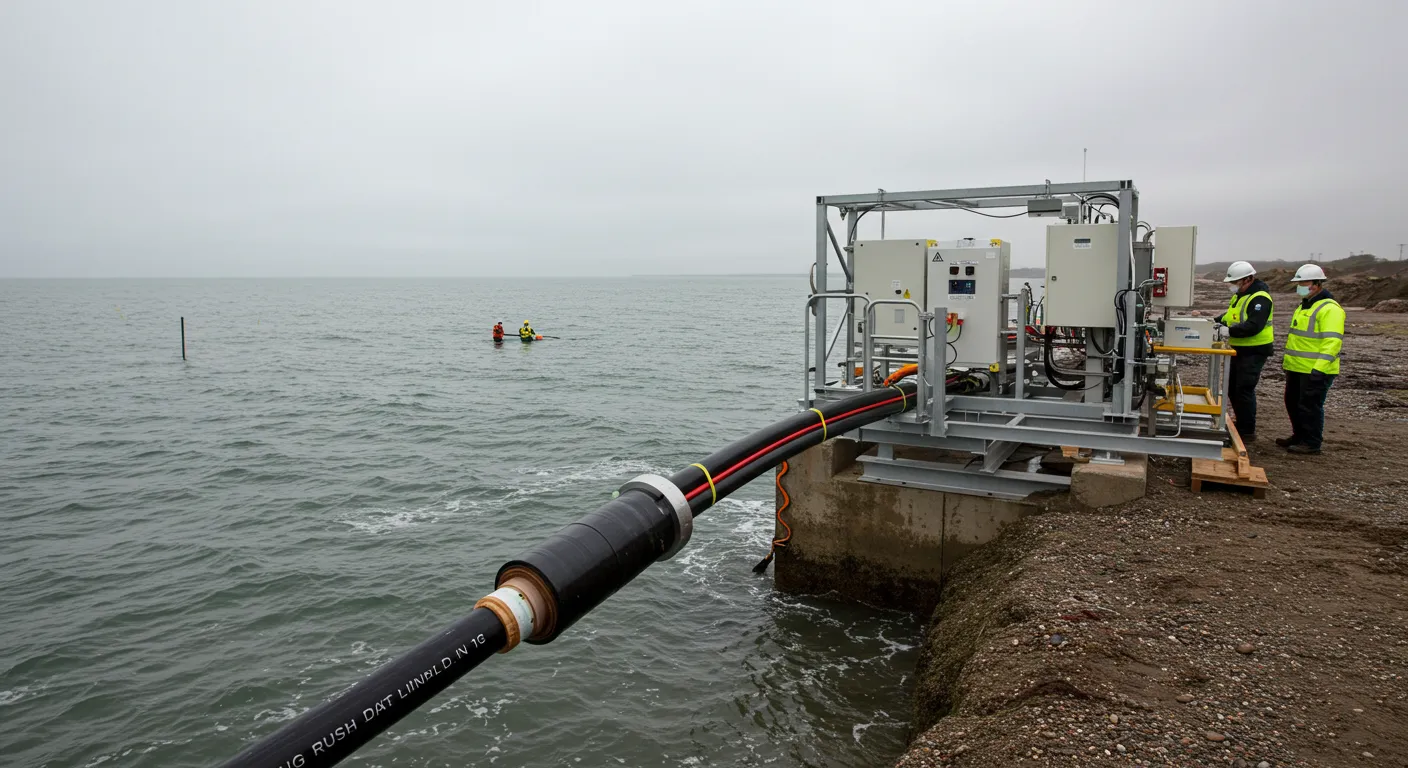
WordPress Optimization
WordPress powers over 43% of all websites, but its flexibility often comes at the cost of performance. Many WordPress sites suffer from slow loading times, poor Core Web Vitals scores, and frustrated users. However, with the right optimization strategies, WordPress can deliver exceptional performance that rivals any custom-built solution.
WordPress Reality Check
The average WordPress site loads in 4.2 seconds—far too slow for today's users. With proper optimization, you can achieve sub-2-second load times while maintaining all of WordPress's functionality and flexibility.
WordPress Performance Foundations
Before diving into specific optimizations, understanding WordPress's architecture helps identify performance bottlenecks and optimization opportunities.
Common WordPress Performance Bottlenecks
- Database queries: Inefficient or excessive database calls
- Plugin conflicts: Poorly coded or resource-heavy plugins
- Theme complexity: Bloated themes with unnecessary features
- Image optimization: Oversized, unoptimized images
- Server configuration: Suboptimal hosting environment
Hosting Environment Optimization
Your hosting foundation determines the ceiling for WordPress performance. Even the most optimized WordPress site will struggle on poor hosting infrastructure.
WordPress-Optimized Hosting Features
Essential Hosting Features
- PHP 8.1+ with optimized configurations
- MySQL 8.0+ or MariaDB 10.5+
- SSD storage with sufficient IOPS
- HTTP/2 and HTTP/3 support
- Built-in caching mechanisms
- CDN integration
Performance Killers
- Shared hosting with resource limits
- Outdated PHP versions
- Traditional HDD storage
- No server-level caching
- Overloaded servers
- Poor network connectivity
PHP and Server Configuration
Optimal PHP configuration significantly impacts WordPress performance:
; PHP optimization for WordPress
memory_limit = 512M
max_execution_time = 300
max_input_vars = 3000
upload_max_filesize = 64M
post_max_size = 64M
; OpCache configuration
opcache.enable=1
opcache.memory_consumption=256
opcache.max_accelerated_files=20000
opcache.revalidate_freq=0
opcache.validate_timestamps=0Configuration Tip
Enable PHP OpCache to cache compiled PHP bytecode. This single change can improve PHP execution speed by 2-3x for WordPress sites.
Advanced Caching Strategies
Caching is the most impactful WordPress optimization technique. Implementing multiple caching layers creates dramatic performance improvements.
Multi-Layer Caching Architecture
- Browser caching: Cache static resources in user browsers
- CDN caching: Distribute content globally
- Page caching: Cache complete HTML pages
- Object caching: Cache database query results
- OPCache: Cache compiled PHP bytecode
WordPress Caching Plugin Configuration
// wp-config.php optimizations for caching
define('WP_CACHE', true);
define('ENABLE_CACHE', true);
// Object caching with Redis
define('WP_REDIS_HOST', 'localhost');
define('WP_REDIS_PORT', 6379);
define('WP_REDIS_DATABASE', 0);
// Disable unnecessary features
define('WP_POST_REVISIONS', 3);
define('AUTOSAVE_INTERVAL', 300);
define('WP_AUTO_UPDATE_CORE', true);Database Performance Optimization
WordPress relies heavily on its MySQL database. Optimizing database performance reduces page load times and improves overall site responsiveness.
Database Cleanup and Optimization
-- Remove spam comments and optimize tables
DELETE FROM wp_comments WHERE comment_approved = 'spam';
DELETE FROM wp_commentmeta WHERE comment_id NOT IN (SELECT comment_ID FROM wp_comments);
-- Clean up post revisions (keep latest 3)
DELETE FROM wp_posts WHERE post_type = 'revision'
AND post_date < DATE_SUB(NOW(), INTERVAL 30 DAY);
-- Remove unused tags and categories
DELETE FROM wp_terms WHERE term_id IN (
SELECT term_id FROM wp_term_taxonomy
WHERE count = 0 AND taxonomy IN ('post_tag', 'category')
);
-- Optimize all WordPress tables
OPTIMIZE TABLE wp_posts, wp_postmeta, wp_comments, wp_commentmeta,
wp_terms, wp_term_relationships, wp_term_taxonomy, wp_users, wp_usermeta;Query Optimization Techniques
Identifying and optimizing slow queries dramatically improves performance:
Use the Query Monitor plugin to identify slow database queries. Look for queries taking >100ms and optimize them through indexing, query rewriting, or caching.
-- Enable slow query log in MySQL
SET GLOBAL slow_query_log = 'ON';
SET GLOBAL long_query_time = 0.1;
SET GLOBAL slow_query_log_file = '/var/log/mysql/slow.log';Add strategic database indexes to improve query performance for common WordPress operations:
-- Add indexes for common queries
ALTER TABLE wp_posts ADD INDEX idx_post_status_type (post_status, post_type);
ALTER TABLE wp_postmeta ADD INDEX idx_meta_key_value (meta_key, meta_value(191));
ALTER TABLE wp_comments ADD INDEX idx_comment_approved_post (comment_approved, comment_post_ID);Plugin and Theme Optimization
Plugins and themes often contribute significantly to WordPress performance issues. Strategic selection and optimization are crucial for maintaining fast load times.
Plugin Performance Audit
Regularly audit your plugins for performance impact:
- Query impact: Use Query Monitor to identify plugins making excessive database calls
- Loading time: Measure how each plugin affects page load times
- Resource usage: Monitor CPU and memory consumption
- Necessity assessment: Remove plugins that aren't essential
Plugin Performance Warning
Some popular plugins can add 500ms+ to your page load time. Always test performance impact before and after installing new plugins, and regularly audit existing ones.
Theme Optimization Strategies
// Optimize WordPress theme functions.php
// Remove unnecessary WordPress features
remove_action('wp_head', 'wp_generator');
remove_action('wp_head', 'rsd_link');
remove_action('wp_head', 'wlwmanifest_link');
remove_action('wp_head', 'wp_shortlink_wp_head');
// Optimize script loading
function optimize_script_loading() {
// Defer JavaScript loading
if (!is_admin()) {
wp_deregister_script('jquery');
wp_register_script('jquery', '//ajax.googleapis.com/ajax/libs/jquery/3.6.0/jquery.min.js', false, '3.6.0', true);
}
}
add_action('wp_enqueue_scripts', 'optimize_script_loading');
// Limit post revisions
if (!defined('WP_POST_REVISIONS')) {
define('WP_POST_REVISIONS', 3);
}Advanced Performance Techniques
For maximum WordPress performance, implement advanced optimization techniques that go beyond basic caching and hosting improvements.
Critical Resource Optimization
- Critical CSS inlining: Inline above-the-fold CSS for faster rendering
- Resource preloading: Preload critical fonts and images
- Script optimization: Minimize, combine, and defer JavaScript
- Image optimization: Use modern formats and lazy loading
// Advanced WordPress optimizations
function advanced_wp_optimizations() {
// Preload critical resources
echo '';
echo '';
// Critical CSS for above-the-fold content
echo '';
}
add_action('wp_head', 'advanced_wp_optimizations', 1);
// Optimize WordPress queries
function optimize_wordpress_queries() {
// Reduce main query posts
if (is_home() && !is_admin()) {
set_query_var('posts_per_page', 5);
}
}
add_action('pre_get_posts', 'optimize_wordpress_queries');WordPress-Specific Performance Monitoring
Implement comprehensive monitoring to track WordPress-specific performance metrics:
- Database query time: Monitor slow query trends
- Plugin performance: Track individual plugin impact
- Cache hit rates: Ensure caching effectiveness
- Core Web Vitals: Monitor user experience metrics
WordPress Performance Optimization Checklist
- ✅ Choose WordPress-optimized hosting with modern PHP and MySQL
- ✅ Implement multi-layer caching (page, object, CDN)
- ✅ Optimize database with regular cleanup and indexing
- ✅ Audit and optimize plugins for performance impact
- ✅ Use lightweight, optimized themes
- ✅ Optimize images with modern formats and lazy loading
- ✅ Minimize and defer JavaScript and CSS
- ✅ Enable compression (Gzip/Brotli)
- ✅ Implement object caching with Redis or Memcached
- ✅ Monitor performance with WordPress-specific tools
- ✅ Regular maintenance and security updates
- ✅ Test performance across different devices and connections
WordPress Security and Performance
Security and performance are interconnected in WordPress. Security measures that don't compromise performance:
- Efficient security plugins: Choose lightweight security solutions
- Regular updates: Keep WordPress, themes, and plugins updated
- Secure hosting: Use hosts with built-in security measures
- Content delivery networks: CDNs provide both performance and DDoS protection
Future-Proofing WordPress Performance
Stay ahead of WordPress performance trends and emerging technologies:
- Block editor optimization: Optimize for Gutenberg's block-based architecture
- Headless WordPress: Consider decoupled architectures for maximum performance
- Edge computing: Leverage edge functions for dynamic content
- AI-powered optimization: Use machine learning for automatic optimization
Conclusion
WordPress performance optimization is a multi-faceted discipline requiring attention to hosting, caching, database management, and code optimization. While WordPress's flexibility can create performance challenges, proper optimization techniques can deliver exceptional speed and user experience.
The key to successful WordPress optimization is taking a systematic approach: start with hosting foundations, implement comprehensive caching, optimize your database, audit plugins and themes, and continuously monitor performance. Remember that optimization is an ongoing process, not a one-time task.
By following the strategies outlined in this guide, you can transform a slow WordPress site into a high-performance website that delivers excellent user experience, improves search rankings, and drives better business results. The investment in proper optimization pays dividends through improved user engagement, higher conversion rates, and better search visibility.
Ready to supercharge your WordPress performance? Contact our WordPress optimization specialists for a comprehensive site audit and custom optimization plan.

